Leveraging Social Media to Promote Positive Malaria Behaviors in Nigeria
In Nigeria, 81% of adults use social media for health-related purposes, and over one-half do so daily.[1] As such, Breakthrough ACTION recognized the potential of social media to reach and engage a broad audience with accurate health information. In response, the project implemented a comprehensive and coordinated malaria social media strategy, which included the following actions:
- Developed a social media strategy aligned with the project’s malaria communication and behavioral objectives. The strategy aimed to reach 18–65-year-olds across all states in Nigeria. Staff dedicated to working on social media collaborated with malaria technical experts to develop visually appealing, technically sound content. The project also developed quarterly social media plans to operationalize the strategy and align with other SBC activities taking place at the same time. For example, messages about insecticide-treated nets were the thematic focus when states conducted mass mosquito net distribution campaigns. Paid promotions increased the reach and engagement of malaria content.
- Provided comprehensive training to the National Malaria Elimination Program (NMEP) staff and other communication staff working for the project’s implementing partners. Subject matter included content development for social media, creating social media plans and calendars, budgeting, and utilizing social media listening tools, including social media analytics for monitoring and reporting. This effort equipped NMEP to effectively conduct and sustain impactful social media activities beyond the life of the Breakthrough ACTION project in Nigeria.
- Collaborated with NMEP and partners to create a social media technical working group. The group jointly developed social media toolkits for World Malaria Day and World Mosquito Day campaigns, containing graphics, videos, text, captions, and hashtags. This collaboration and use of relevant toolkits ensured unified messaging across NMEP and partners’ social media platforms.
The project’s efforts resulted in tremendous reach. Between November 2019 and April 2024, Breakthrough ACTION’s posts reached over 16 million people, and 3.7 million people shared, liked, or commented on its malaria content.
Sample Social Media Posts
Lessons Learned
- Close collaboration between social media and malaria technical teams ensured social media content was visually appealing, aligned with the project’s malaria SBC strategy, and received consistent quality reviews.
- Developing a social media plan every three months allowed for adjustments based on program needs and key events. Each plan clearly defined the target audience, content, budget, and expected outcomes, ensuring a focused and effective social media strategy.
- Qualitative and quantitative analytics and joint data reviews with the technical malaria team informed the refinement of each quarter’s social media plan. This adaptive approach allowed the project to tailor future campaigns and ensure continued relevance and effectiveness.
- Short videos, such as those from the Mama Put fever care campaign, were highly effective, garnering several millions of engagements across three platforms: Facebook, X/Twitter, and Instagram.
Breakthrough ACTION’s social media strategy demonstrates the potential of social media platforms to drive positive health outcomes. By implementing a comprehensive and coordinated strategy across all SBC approaches, working closely with subject matter experts, and prioritizing capacity strengthening, the project assembled a sustainable social media framework for future SBC programs to adapt and build upon.
Reference
[1] Abaya, S. T., Enuma, E. U., Chukwueze, B. C., Raimi, A. G., Kakwi, D. J., & Raimi, M. O. (2023). Prevalence, determinants and benefits of use of internet for health-related information among adults in Abuja, Nigeria. AfricArXiv. https://doi.org/10.21428/3b2160cd.14740987
Written by: Edoziem Valentine, Linda Osaji, Bolatito Aiyenigba, Angela Acosta, and Mwikali Kioko

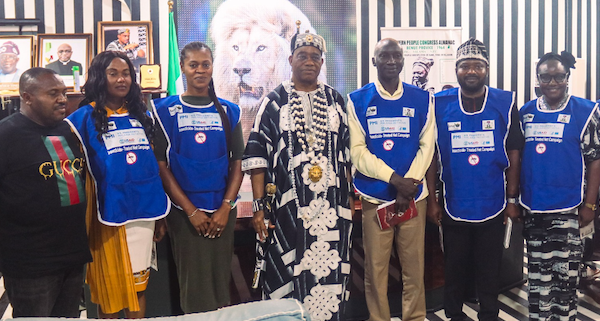
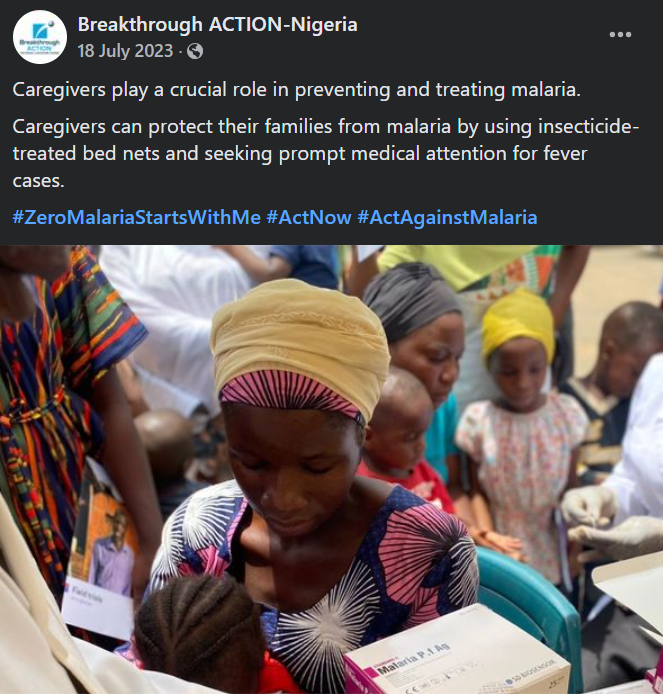
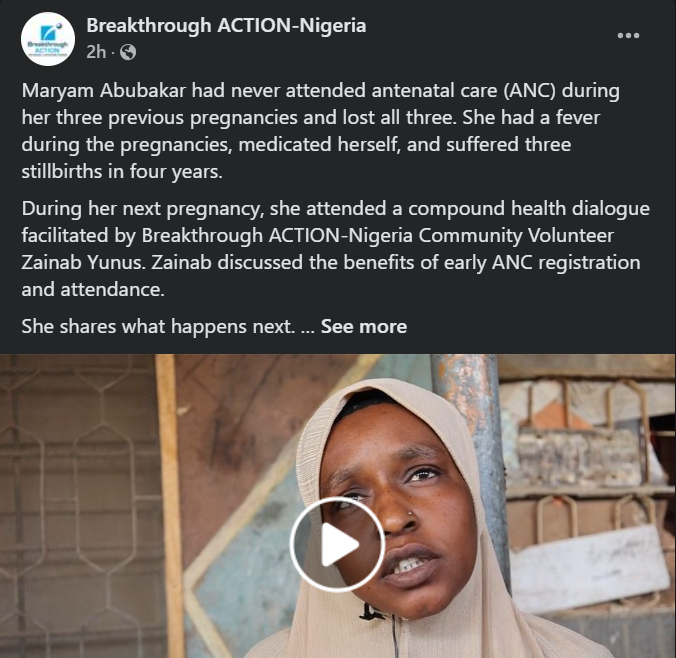
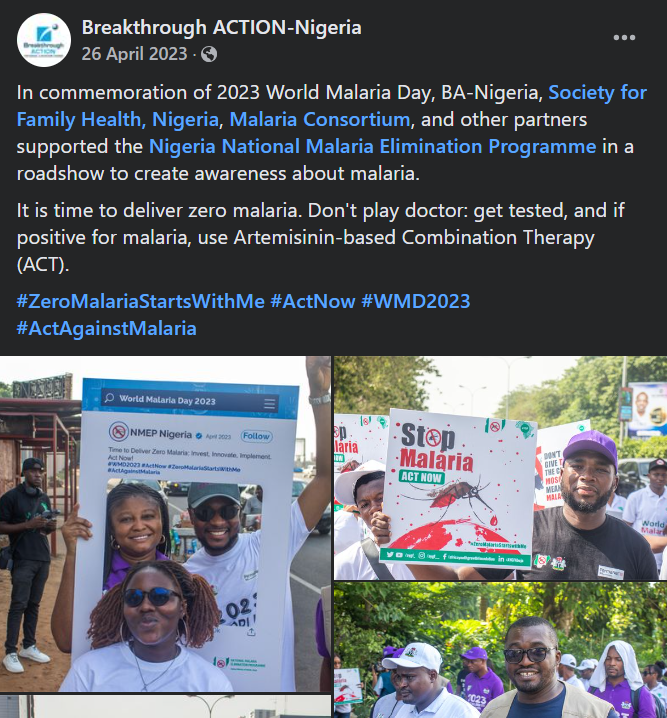
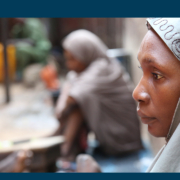
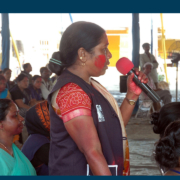 Gopal Bhattacharjee/Photoshare
Gopal Bhattacharjee/Photoshare Kuntal Kumar Roy/Photoshare
Kuntal Kumar Roy/Photoshare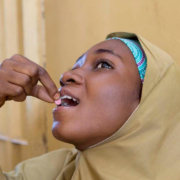 WHO
WHO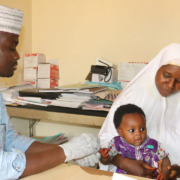 Breakthrough ACTION
Breakthrough ACTION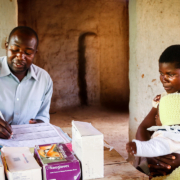 Photo credit: amy Rakotoniaina/PMI/Flickr
Photo credit: amy Rakotoniaina/PMI/Flickr